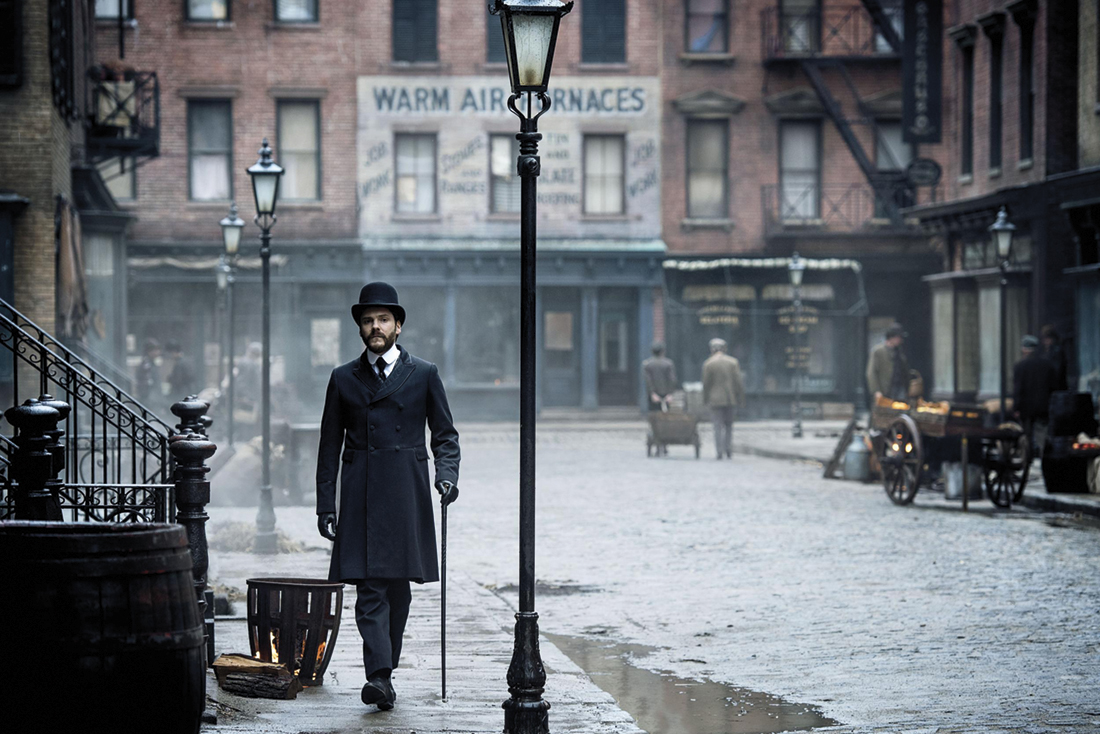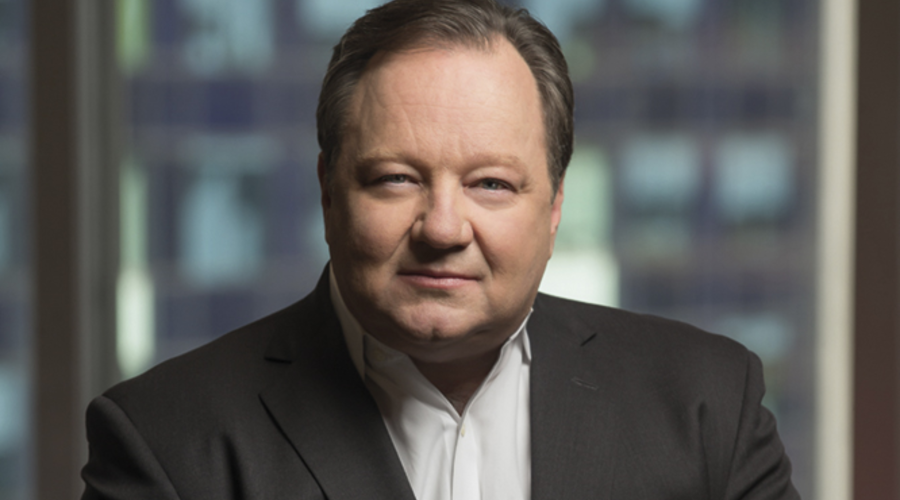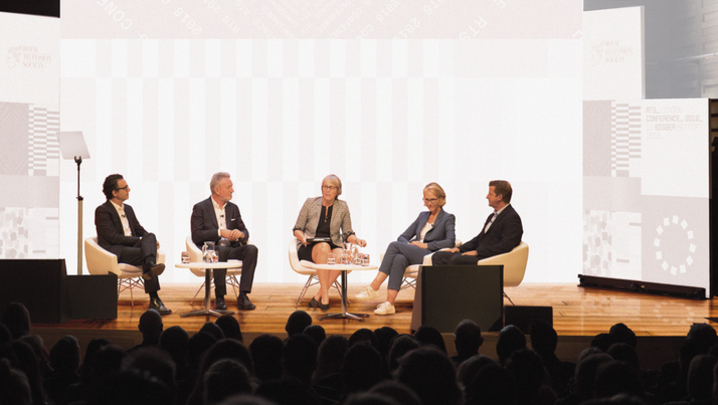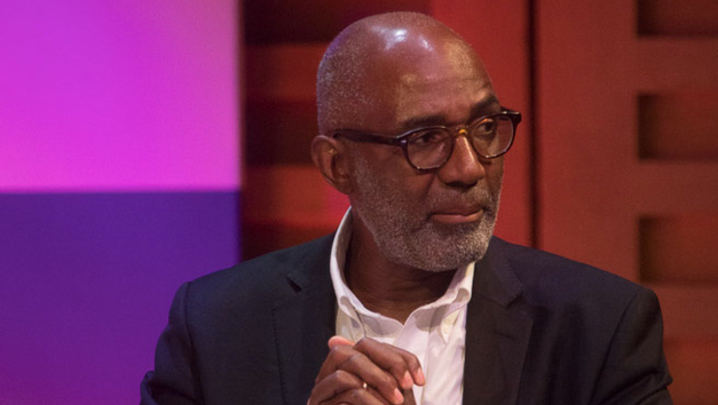Steve Clarke interviews Viacom CEO and President Bob Bakish ahead of his RTS conference keynote
In a media world hit by both consolidation and fragmentation, flagship brands are daily demonstrating their value. And they are central to the strategy of Bob Bakish, CEO and President of global entertainment powerhouse Viacom, who has occupied the hot seat since December 2016.
Names such as Comedy Central, MTV and Nickelodeon are more crucial than ever to Viacom’s US and global success in a crowded and fluid media market.
This applies to content that cuts through using the right distribution channels and platforms, but also to live events and movies (Viacom owns Paramount), where profile fuels popularity and revenues.
“It’s certainly an interesting time to be in the media,” Bakish reflects in a phone call from the group’s Manhattan HQ. “You can look at it as glass half empty or glass half full. I tend to look at the whole world as half full, because there is opportunity in change.”
The former Booz Allen & Hamilton executive joined Viacom in 1997, rising through various positions, such as business development and advertising sales. From 2007, he ran Viacom International Media Networks and its predecessor, MTV Networks International. During this period, he more than doubled the division’s revenues.
In autumn 2016, the comparatively low-key Bakish was appointed Viacom’s acting CEO and President. He had impressed Shari Redstone, non-executive Vice-Chair of the Viacom board and the daughter of the legendary Sumner Redstone. One of the giants of the US entertainment business, Redstone bought Viacom in the late 1980s in a hostile takeover.
Today, Bakish heads a complex company that reaches a cumulative 4.3 billion TV subscribers. In the UK, Argentina and India, Viacom is the owner or co-owner of high-profile TV networks – Channel 5, Telefe and Colors, respectively.
"People, including our employees, needed to know what we were trying to achieve"
On being appointed to the top job, Bakish, straight talking and bullish, immediately began devising a transformation plan. Today, it is reshaping Viacom into a leaner, more focused company capable of punching its full weight against traditional competitors and the digital behemoths.
“One of the first things I did when I took over as Viacom CEO in 2016 was very quickly work on a plan and then roll it out publicly. People, including our employees, needed to know what we were trying to achieve,” he says.
Step two was to have the right team in place. “We made extensive changes to the Viacom management team,” he explains. “The most extreme case was Paramount, where I changed the entire senior team.”
The final – and perhaps hardest – step is the task of executing the plan. “I am happy to say, sitting here a year and a half in, that we’ve consistently moved the ball forward,” says Bakish. “We’re not the same company that we were two years ago. We’re in much healthier shape.
“We have a ways to go. I encourage you, for example, to watch what happens at Paramount during the next year, because you’ll see it once again be one of the pre-eminent studios in the world.”
He adds: “I think it’s a great time to be doing it. There’s actually a lot of noise out there. A lot of big companies are in a state of chaos because of M&A or potential M&A, [whereas] we’re just playing through, building share, improving sequentially.”
Consistent with the policy of focusing on maximising the power of Viacom’s flagship brands, under Bakish’s leadership the Paramount brand today encompasses a range of activities – in other words, Paramount Pictures, the world’s oldest film studio, represents only part of what Paramount does.
Production has been ramped up at Paramount Television, as Bakish explains: “Our Paramount television production business didn’t exist four years ago. This year, the division will generate more than $400m in revenue. It is profitable and it is producing hits.” These include 13 Reasons Why, made for Netflix, and The Alienist, made for TNT in the US.
On 4 July, Paramount Network, a free-to-air service featuring drama, comedy and movies, was launched in the UK, following its US debut in January. The move was described as “a critical milestone” by London-based Jill Offman, executive vice-president of Comedy Central and Paramount Network International.
With Viacom operating 20-plus TV network brands in the US, Bakish highlights the importance of focusing on the flagship brands. “In the US, they are Nickelodeon, MTV, Comedy Central, BET and Paramount,” he says. “We were too fragmented in the US... we needed to concentrate our resources on a subset of those brands.”
He believes that it is essential for Viacom’s brands to have what he calls “true, multi-platform expression”, and that the likes of Nickelodeon and MTV are leveraged in more than one space.
“We know that there is tons of consumption in digital,” he says. “Historically, we’ve looked at that as cannibalistic but, with fragmentation, it’s an opportunity to reach people you might not otherwise reach.”
Six months ago, the company launched Viacom Digital Studios. Here, the strategy involves reimagining its brands for younger audiences, with content destined for such platforms as YouTube and Facebook Watch. Titles announced to date include Cooking in the Crib with Snooki, a new take on MTV’s Cribs franchise, and animated shorts The JoJo & BowBow Show for YouTube, featuring Nickelodeon’s JoJo Siwa.

“This content is only starting to hit the screen, and we’ll be building on this,” notes Bakish. “I am tremendously excited about what’s going on there.” Last month, Viacom confirmed that it had bought Awesomeness TV, further evidence of the firm’s determination to position itself as a leading digital publisher for younger audiences, competing with the likes of Vice and Buzzfeed.
“We’re doing a lot of work, day in and day out, with MTV in the digital native space”
However, reinventing even a world-conquering brand such as MTV in today’s choice-saturated environment presents challenges. The CEO acknowledges that, in the past, mistakes were made regarding MTV’s US strategy.
“In the US, MTV went down a scripted path and saw ratings degradation and some real loss of uniqueness. You’ve got to focus on what the brand represents and what your position is.
“Outside the US, when I was running International – and still today – we were committed to a unique brand position that combined music with heavy reality, unscripted shows. We grew share under that strategy.”
A shift in policy in America with MTV returning to reality shows is paying off. “We’re now in the fifth straight quarter of ratings growth,” says Bakish. “We’re doing a lot of work, day in and day out, with MTV in the digital native space.”
He cites the example of reviving the Total Request Live (TRL) franchise and introducing a segment entitled TRLevator, in which the Backstreet Boys get into a lift alongside MTV staff and proceed to sing to the amazed workers Carpool Karaoke-style. The clip has been a massive hit on YouTube.
“When we brought back TRL, we quickly found that consumption was far stronger online than on TV,” says Bakish, adding: “That way, we’re able to attract, retain and, ultimately, monetise today’s youth, who like to consume content that way.”
This is all well and good, he suggests, but “in this digitally interconnected world, there is no substitute for the real thing. That’s where our events franchises come in.” As the music business learnt the hard way, live performances long ago surpassed record sales in terms of their ability to generate revenue. Historically, Nickelodeon and MTV have been big players in live events.
Nickelodeon’s SlimeFest made its debut in the US in June, having previously staged sell-out shows in South Africa, Australia, Italy, the UK and Spain. SlimeFest UK, a partnership with Live Nation, will take place in the Arena at Blackpool Pleasure Beach in October.
“Year-to-year attendance at Viacom events is doubling to about 2 million people”
MTV’s international events have helped reinforce the brand for many years. Nowadays, their popularity is driven by social media. The biggest MTV events are the MTV Video Music Awards, held last month in New York, and the MTV Europe Awards, to be staged in Bilbao this November.
Says Bakish: “Those are top-of-the-pyramid events. They showcase what MTV is all about in music and pop culture. They’re supported by teams, research and investment. Strictly speaking, it’s not about doing it in the same old way but it’s always about being true to the brand and the fan.”
He adds: “Year-to-year attendance at Viacom events is doubling to about 2 million people.”
Ultimately, though, Viacom remains a content company at heart. Famously, it was Sumner Redstone who coined the phrase, subsequently adopted as an entertainment business mantra, “Content is king”.
In this context, Viacom’s signing of Tyler Perry, the African-American writer, director, producer, playwright and actor, in July last year may turn out to represent a landmark for the Bakish era. Perry is producing 90 episodes of drama and comedy series per year for BET and other Viacom networks. The company also secured exclusive distribution rights to Perry’s short-form video content and Paramount Pictures gained first-look rights to his feature-film ideas.
“The deal with Tyler Perry came out of a conversation that led to me getting on a plane, flying down and meeting him. That, ultimately, led to Tyler signing to join Viacom instead of Lionsgate.” Bakish recalls.
This aside, competition is unlikely to ease up, especially as Apple joins Netflix and Amazon in the high-end content space.
Does Viacom have anything to learn from these companies? “I think the most important thing you can do in life is to continue to learn,” says Bakish. “You can learn from all over the place. If you look at what happened with TV Everywhere, it was a significantly missed opportunity.
“An inferior product was created because the partners in the ecosystem – the distributors and the programmers – basically fought each other to get the best economic outcome for themselves. This allowed a new entrant to come in on an OTT basis and create the product we should have had. It attracted triple-digit millions of subscribers and created a market cap that dwarfs the traditional guys.
“The lesson there is that, [while] I don’t think you can do everything, you’ve got to see how to work with people and you’ve got to do it pretty quickly and unlock opportunities.
“If you don’t, someone else will show up. I don’t know if that’s purely a lesson from the digital guys. The digital guys are able to exploit that a lot because of their capital structures.
“At the moment, they have immense resources that they can throw at something if they choose to.
“That teaches you to be focused and not to hang around.… Watching them, seeing what they are able to create and how they use data, targeting and measurability, you have to replicate some of that. So, there are lessons.”
Bob Bakish… on the streamers
‘Sure, they’re frenemies, but we do business with all of them. We’ve just announced a deal for a new animated series that will be shown by Netflix, Pinky Malinky, produced by Nickelodeon.
‘I was with a very large European distributor two weeks ago. The conversation was about: ‘We have channels on this platform. We have on-demand on this platform.’ They’re looking to have more original content as they focus on having a cornerstone position in their country.
‘To them, Netflix is a frenemy, too. On the one hand, they get some revenue, on the other, they don’t want people just going to [the streamer]. That, in turn, led to a conversation about partnering on more original content that they could have, in this case, for an exclusive first window.
‘Yeah, the world is a complicated place where, historically, customers are competitors, and people who weren’t in the business are now in the business.
‘But, as I watch other companies vertically integrate… AT&T, Time Warner, and we’ll see what happens with Fox… there’s actually an incredible opportunity for Viacom to do what it does best, which is to create great content and partner with others. That is exactly what we’re focused on. I think that is a good hand to play.’
Bob Bakish… on the UK’s Channel 5

‘Channel 5 is a fundamental part of our international strategy. Actually, when we acquired it almost four years ago, we saw a tremendous opportunity in combining our pay-network position in the UK with a general entertainment, free-to-air position in the UK.
‘From a commercial standpoint, we believed there would be synergies – in advertising sales, content creation, cross promotion – and so drive larger audiences for the combined company.
‘We believed, frankly, that it would create opportunity for our employees. And all that together would drive growth. That’s exactly what happened. We continue to be very pleased with Channel 5, even though one thing that we didn’t predict when we bought it was Brexit.
‘We can’t control the fact that Brexit happened. All we have to do is play through. The good news is that it is not going to affect Viacom’s commitment to the UK and London. We have a tremendous team there and they’re doing great work.
‘We have valuable media assets in London. That is not going to change.
‘In the short term, and we’ve seen this to date and, unfortunately, we will continue to see this for a little while, Brexit is affecting our commercial abilities and monetisation [in the UK].
‘Brexit has not been a positive for the UK ad market. That costs us some money. I am not happy about that. But we’re in it for the long haul. Through this period, we have chosen to increase our investment, even though revenue hasn’t been what we had hoped.’
Bob Bakish… on potential UK acquisitions
‘We’re always looking for something interesting that fits in and is likely to accelerate our strategy. [Such deals] are hard to find and hard to get done. Unfortunately, most deals don’t get done.
‘We continue to be on the lookout for acquisitions in the UK. I can’t tell you for sure if there’s going to be anything in the UK, because we look broadly.’
Bob Bakish… on the drama boom
‘Viacom is, at core, a content company, so it’s a good thing. Excluding 13 Reasons Why, The Alienist and Tom Clancy’s Jack Ryan for Amazon, we have 22 other scripted shows set up with networks.
‘There’s no doubt that some of those will convert to orders. Why is that happening? It’s because there has never been more access to content. Companies – whether… their core [activity is entertainment], or they are new entrants looking to drive their businesses using entertainment… to pull people into the funnel – are buying product. I think that’s going to last for a while.’







